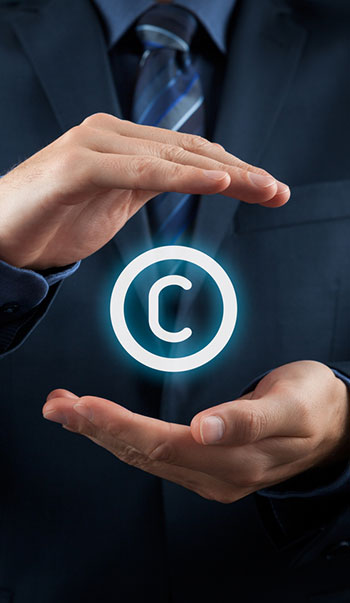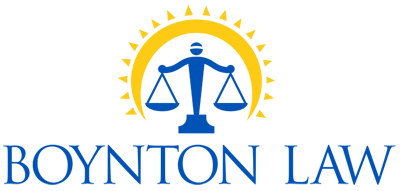Help From a South Florida Copyright Lawyer
Copyright law provides important protections to authors for their intellectual property. People who author works or create art own the copyrights to their creations automatically. For certain types of work, however, formally registering a copyright is important. A South Florida copyright lawyer at Boynton Law helps their clients to register their copyrights and enforce their rights when others infringe upon them.
What Rights Do Copyright Holders Have?
Authors and creators of artistic works enjoy all of the following rights under the copyright laws:
- Copy their works
- Distribute their works
- Publicly perform their works
- Make derivatives of their works
- Publicly display their works
When you hold the copyright to your work, others cannot do any of the previously listed things without first getting your permission. However, there are certain exceptions to the rights of copyright holders, including the Fair Use doctrine. The Copyright Act of 1976 embodies the current copyright law in the U.S.
The Importance of Copyrights
Copyright laws provide important protections to creators of original works. Because of copyright laws, others cannot plagiarize your work or do other things with it without your permission. As a creator, you are entitled to control the things that others can and cannot do with your works. Holding copyrights also gives you the power to enforce your rights against people who try to steal or copy your original works.
Types of Works that Are Protected by Copyrights
Original works that are tangible expressions are protected by copyright laws. The form of the works does not have to be immediately perceivable as long as it can be communicated with the help of a device. The following categories of works are protected by copyrights:
- Computer software
- Literary works
- Plays and other dramatic works
- Choreography and pantomimes
- Sculptural, graphic, and pictorial works
- Films
- Audio recordings
- Architectural works
Types of Works that Do Not Enjoy Copyright Protections
The following types of works are not protected under the copyright laws:
- Ideas, systems, methods, concepts, procedures, and devices, but written descriptions of them are protected by copyright laws
- Slogans, short phrases, names, and titles
- Intangible works such as improvisations that are not recorded or written down
- Works that consist solely of commonly available information that are not original
- Works created by the federal government
Copyright Ownership
The author of a work immediately owns the copyright to it. However, this right can be granted to others in a contract. Employees who create works and those who create them on commission do not own the copyrights. Instead, their employers are the copyright holders. When two or more people jointly create work, they co-own the copyright.
Copyright Infringement
People and entities that infringe on the exclusive rights of copyright holders without their permission can be forced to pay the copyright holders the amount that they could have made if the infringement had not occurred. If your copyright is registered through the U.S. Copyright Office, the infringing party may also have to pay statutory damages that may be higher. Infringers may also be found to be guilty of criminal copyright infringement charges.
To prove that someone has infringed on your rights as a copyright holder, you must prove the following elements in court:
- The infringer’s work is substantially similar to your copyrighted work
- The infringer saw or heard your work
- Your work was created first
Fair Use Doctrine
There are certain limitations on the rights of copyright holders. The Fair Use doctrine is among the most important exceptions. Under this rule, copyrighted works can be copied on a limited basis for research or educational purposes. Reproducing works for reporting, criticism, scholarship, research, or teaching is not considered to be copyright infringement. To determine whether the Fair Use doctrine applies, courts consider the following factors:
- The character and purpose for the work’s use
- The copyrighted work’s nature
- The portion used in relation to the entire work
- The impact on the work’s value or marketability
Courts consider all of these factors and balance them before deciding whether the Fair Use doctrine applies or if infringement has occurred.
Before you copy someone else’s work, you need to figure out who owns the copyright. You must ask for their written permission before making copies or using their work. You should not assume that the Fair Use doctrine will apply.
How to Obtain Copyright Protection
Once you create a copyrightable work, you automatically hold the copyright to it. You do not have to register your work with the Copyright Office to obtain copyright protection. You also are no longer required to affix a copyright notice to your work. This requirement ended on March 1, 1989. However, a copyright notice is important because it notifies the public that your work is protected by your copyright and identifies you as the copyright holder.
The copyright notice includes the following features:
- The copyright symbol or the word “Copyright”
- The year when the work was first published
- The copyright holder’s name
When Should Copyrights Be Registered?
While you do not have to register your work to hold the copyright, there are several circumstances when it makes sense to do so. You have to register a copyright before you can file a lawsuit for infringement. If you register your work within three months after you distribute your work or before someone infringes it, you will be eligible to recover statutory damages in a copyright infringement lawsuit.
Your copyright registration will be effective on the date that all of the required items are received by the Copyright Office even if it takes a long time for the office to finish processing it. Copyrights last from the time you create your work until 70 years after you die. Once your copyright expires, the work will fall into the public domain.
If you own the copyright to a work that was created by your employee, the copyright will last for the shorter term of 95 years from its publication date or 120 years from its creation date. Works created before 1978 had copyrights that lasted for an initial term of 28 years. During the final year, the copyright holder could apply to renew the copyright.
Get Help from a South Florida Copyright Lawyer at Boynton Law
While registering your copyright is not required, it is a good idea when you create valuable work and are concerned about potential infringement. The copyright attorneys at Boynton Law are prepared to help you to understand whether your work is copyrightable. If your original work is infringed, we can also help you to pursue a claim against the infringer. Contact us today to learn more about your rights by calling us at 561-269-6866.

